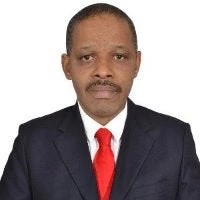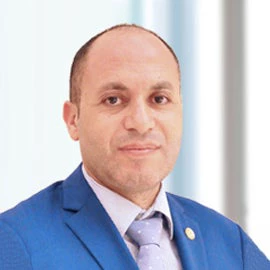Also available in العربية | Français
Two years in the making, last week the Islamic Development Bank Group (IsDBG) and the World Bank Group officially launched the landmark report Mobilizing Islamic Finance for Infrastructure Public-Private Partnerships at a discussion broadcast online from Washington, D.C. We illustrated that, through partnerships, the power of Islamic finance can be instrumental in unlocking financial resources necessary to meet the tremendous demand for critical infrastructure.
In fact, infrastructure PPPs funded with Islamic finance have proliferated in the Middle East, and have flourished in other countries throughout Africa and Asia. Both of our institutions are committed to leverage our competitive advantages, achieve effective interventions, and yield measurable results in scaling up and broadening the use of Islamic finance.
Given our expertise in this niche space, our organizations have the unique ability to direct the funds that “both meet the needs of investors and the needs of ordinary people through infrastructure development…as well as develop Islamic finance knowledge, capacity, tools, and products to maximize its contribution to development,” said Hartwig Schafer, Vice President of Global Themes at the World Bank Group.
Mobilizing Islamic finance is well aligned and goes hand-in-hand with the current emphasis for achieving sustainable and inclusive growth by crowding in private sector funding, a strategy referred to as maximizing finance for development, or MFD, being adopted by the multilateral development banks (MDBs). With this in mind, we can work to tap into the nearly $2 trillion of sharīʿah-compliant resources available around the world.
Why is this so crucial? Achieving the Sustainable Development Goals (SDGs) cannot be met without infrastructure, and conventional financing alone cannot come close to meeting the demand for critical infrastructure, especially in emerging markets and developing economies.
As World Bank Senior Vice President Mahmoud Mohieldin said during his keynote address: “The future of Islamic finance has to be more associated with the SDGs. It is very much compatible with what they stand for… responsible governance, inclusive growth, equitable society, and sustainable world resources and environment.”
Organized to create awareness within our organizations and a wider external audience—the event brought together a rich panel of experts on Islamic finance and infrastructure from our institutions, academia, and the private sector to discuss how it has already been innovatively applied in infrastructure projects through PPP schemes. They explored what the structural challenges and solutions are, and what can be done to deepen and maximize the use of Islamic finance within development and international financial institutions.
Why Islamic finance?
The growth of Islamic finance and its increasing application to infrastructure PPP projects offer excellent opportunities for many developing countries that have yet to explore mobilizing Islamic finance for their infrastructure development.
As the findings of the report show:
- Islamic finance is a natural partner for infrastructure PPP projects . The hallmark of Islamic finance structures is their asset-backed nature. That is, a tangible physical asset must underlie the transaction. Islamic financing practices and their application to finance infrastructure PPP projects have evolved and matured. Islamic finance can be applied to finance a wide variety of infrastructure PPP projects, including roads, power generation, airports, seaports, and hospitals.
- Ways for conventional finance and Islamic finance to coexist in the same infrastructure PPP projects have been tested widely, with great success, in a variety of countries, sectors, and contexts. These two streams of financing complement each other to meet the global infrastructure finance gap.
- In most of the countries where Islamic finance for infrastructure PPPs have been deployed, the first few projects have been financed by MDBs or development finance institutions. This has created precedence for commercial lenders to follow. However, more efforts are needed to familiarize practitioners with Islamic finance structures to finance infrastructure PPP projects.
The way forward
The industry will largely benefit if Islamic finance-related documents can be standardized. While each transaction is unique and must be modified to fit the local context, standardization will help many Islamic finance practitioners understand the most common credit and legal aspects involved in Islamic finance for PPPs. Such toolkits and portfolios of standardized contracts and other documents can give practitioners a starting point and a framework.
More broadly, in order to provide further impetus to the Islamic finance sector, MDBs will need to play an even more vibrant role by forging close partnerships with each other, countries, international institutions, Islamic infrastructure institutions, and with Islamic financial institutions .
Additionally, in line with the findings of the report, special emphasis will be given by the IsDBG on the urgent need to create a robust enabling environment to support PPP initiatives, and above all, how best our member countries can address the need to eliminate perceived barriers of entry for private capital into infrastructure investment.
We see this report and partnership as the first major step in collaborating in the Islamic finance and infrastructure PPP space. We will continue to develop knowledge with an aim to operationalize this agenda moving forward, in partnership with the World Bank Group.
For more information, you can read the report and watch the replay of the event here.
Mobilizing Islamic Finance for Infrastructure Public-Private Partnerships was funded by the Public-Private Infrastructure Advisory Facility (PPIAF) and is the first systematic effort to capture and disseminate knowledge on deploying Islamic finance for infrastructure PPP projects as an additional source of financing. The publication involved efforts and consultations with wider Islamic finance communities and draw-up extensive case studies, selected carefully from a wide variety of sectors and countries.
Disclaimer: The content of this blog does not necessarily reflect the views of the World Bank Group, its Board of Executive Directors, staff or the governments it represents. The World Bank Group does not guarantee the accuracy of the data, findings, or analysis in this post.
Related posts:
A timely report on mobilizing Islamic finance for PPPs
Takeaways from the First IsDB PPP Forum In Riyadh
Tapping into Islamic finance for infrastructure development




Join the Conversation